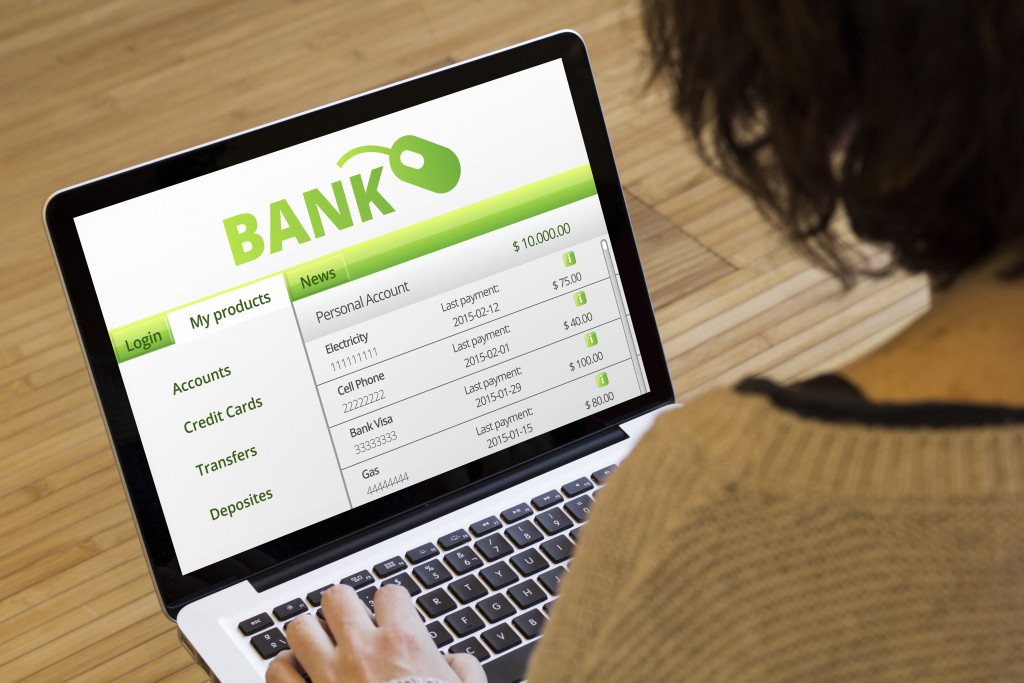- Banks are using digital solutions to boost business efficiency.
- Digital banking channels like mobile and online banking allow customers to access services quickly and conveniently.
- Automation tools help streamline various processes and reduce operational costs.
- Cryptocurrencies provide a safer, more transparent, and more affordable payment system than traditional banking systems.
The banking industry is highly competitive, and banks must know every edge they can gain. The digital era has given rise to a plethora of digital solutions tailored to the business needs of banks. Digital technologies increasingly drive the modern banking landscape, and banks must leverage these technologies to remain competitive. Here’s how banks use digital solutions to boost their efficiency.
Digital Banking Channels
To meet customers’ changing needs, banks have shifted from traditional brick-and-mortar branches towards digital banking channels. These channels allow customers to access banking services quickly and conveniently from their homes or mobile phones.
Mobile Banking
Mobile banking is a popular digital banking channel allowing customers to transact through mobile applications. Using mobile phones, customers can check their account balances, transfer money, pay bills, and even deposit checks remotely. Some banks have gone a step further and integrated chatbots into their mobile banking applications, which allow customers to ask questions, get help with their account and receive customized offers.
Online Banking
Online banking is another digital banking channel that allows customers to access their accounts through the Internet via the bank’s website. Customers can carry out fund transfers, bill payments, and account management transactions.
Online banking has been around for quite some time, and many customers are familiar with it. However, banks are always looking to improve their online banking services by introducing new features, such as peer-to-peer transfers and voice-activated banking.
Advanced Data Management Systems

In today’s digital world, banks have vast data that must be managed effectively to stay ahead in the competitive financial market. One of the critical tools that banks use for advanced data management is SQL server, a powerful relational database management system.
SQL Server provides a secure, scalable, and highly available solution for banks to store, retrieve, and manage data efficiently. However, managing SQL server databases can be complex, and that’s where SQL server performance monitoring services come into play. These services help banks monitor and optimize SQL server performance, ensuring the database runs smoothly to deliver a positive user experience.
Artificial Intelligence and Machine Learning
AI and machine learning have quickly become some of the most prominent technologies the banking sector has adopted. Banks use AI and machine learning to analyze data and identify patterns, thus enhancing risk analysis, credit evaluation, fraud detection, and more. This solution saves banks a lot of time regarding data analysis and therefore improves business efficiency.
Mobile Applications
Mobile applications have revolutionized the banking industry, enhancing convenience, customer satisfaction, and business efficiency. Banks have integrated all their core processes, such as payments, transactions, balance inquiries, remittances, etc., into mobile applications. This means that customers can conduct most banking transactions without visiting physical branches, thus reducing wait times and operational load on bank staff.
Automation Tools
Automated business workflow technology has revolutionized the banking sector. Banks use automation tools to streamline various processes – from client onboarding to account servicing. Automation tools enhance the efficiency of bank processes by standardizing routine business operations and reducing errors significantly. This leads to reduced operational costs and, therefore, better business efficiency.
Cryptocurrencies

In the last few years, cryptocurrencies have become an increasingly popular topic among investors and tech enthusiasts. As a result, the banking industry has been forced to develop new and innovative ways to implement this new technology.
Transparency
As you may know, one of the most significant benefits of blockchain technology that underpins cryptocurrencies is that it allows all transactions to be recorded on a public ledger. This means that transactions are traceable and cannot be altered. With traditional currencies, there is always the risk of fraud, especially regarding international payments. Cryptocurrencies provide a safer and more transparent alternative.
Affordability
Cryptocurrencies can ensure fast and efficient transfers, unlike traditional banking systems that take days, and sometimes weeks, to complete international payments. Additionally, unlike traditional payment systems, cryptocurrencies don’t charge hefty fees and can be more affordable, especially for micropayments.
The Bottom Line
The banking industry is rapidly evolving, largely thanks to digital solutions that have transformed the sector in every way. Banks that have embraced digital solutions are gaining an edge over their competitors. The adoption of digital technologies such as mobile banking, AI and machine learning, automated workflows, and cryptocurrencies are increasing levels of efficiency, streamlining core banking processes, reducing costs, and enhancing overall customer service. Banks must continue innovating and adopting digital solutions to remain competitive.







